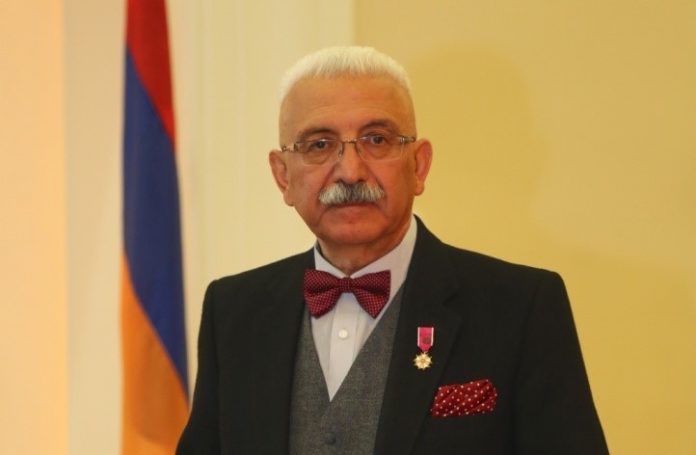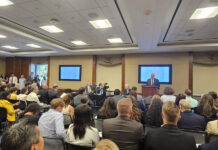By Dr. Hayk Kotanjian and Dr. Arthur Atanesyan
Azerbaijan’s blockage of the sole route connecting Armenia to Nagorno-Karabakh is causing significant hindrance to the delivery of essential supplies, including food and medical resources, to the region inhabited by approximately 120,000 indigenous Armenians, including 30,000 children. The pleas and appeals directed towards Azerbaijani President Ilham Aliyev by international human rights organizations, urging for the immediate reopening of the Lachin corridor, have yielded no response or impact.
During the recent direct negotiations between the leaders of Azerbaijan and Armenia, which were endorsed by the EU, the US and Russia, the discussion has centered on the territories of Armenia excluding Karabakh, and those of Azerbaijan encompassing Karabakh. This perspective implies a scenario as if this situation came into existence during the signing of the Alma-Ata Protocols of 1991, which led to the formation of the Commonwealth of Independent States (CIS). However, the expert community, including our own demonstrations, has consistently shown that the Nagorno Karabakh Autonomous Oblast (NKAO) in accordance with the USSR legislation in force at that time was already detached from the Azerbaijan SSR prior to the signing of the Alma-Ata Declaration.
On July 6, 2023 the International Court of Justice reaffirmed the necessity of implementing its February 22, 2023 Order which obliged Azerbaijan to take all measures at its disposal to ensure unimpeded movement of persons, vehicles and cargo along the Lachin Corridor in both directions.
Armenia has lodged an appeal subsequent to a warning by the previous lead prosecutor of the International Criminal Court, Luis Moreno Ocampo. Dr. Ocampo, who served as the first Prosecutor of the International Criminal Court (ICC) from 2003 to 2012, has been a visiting professor at the American Stanford (2002) and Harvard universities (2003), Hebrew University and USC, and a senior fellow at Yale University, Harvard University and New York University.
The expert alert, issued on August 7, 2023, highlighted Azerbaijan’s alleged preparations for a genocide targeting ethnic Armenians in the Nagorno-Karabakh region. The call was made for the U.N. Security Council to present this matter before the global tribunal.









